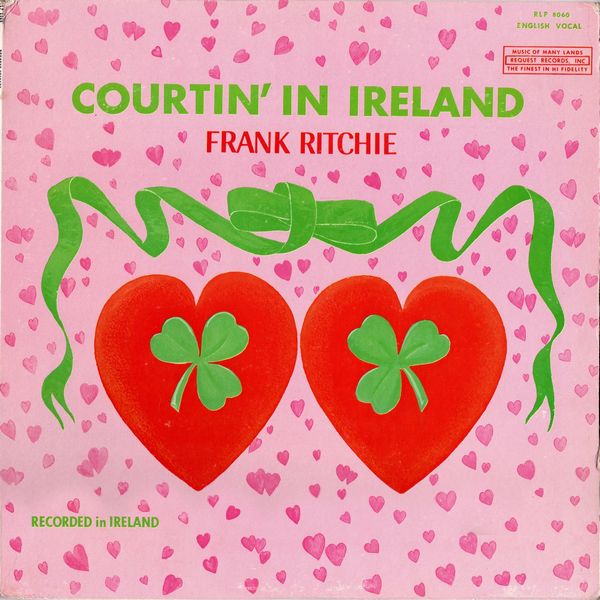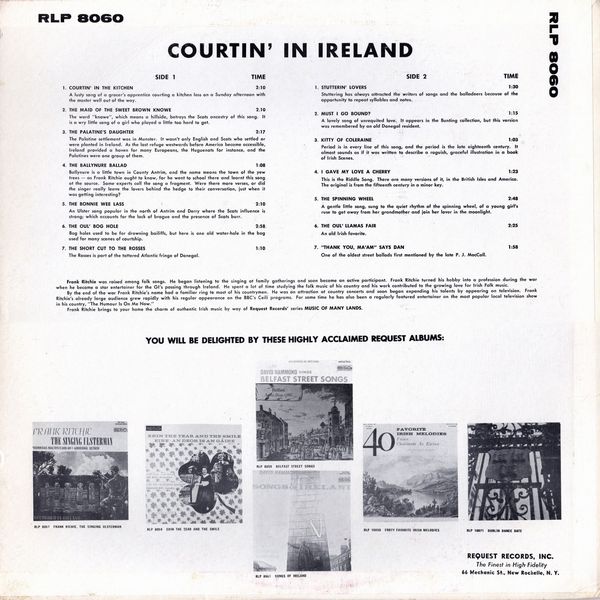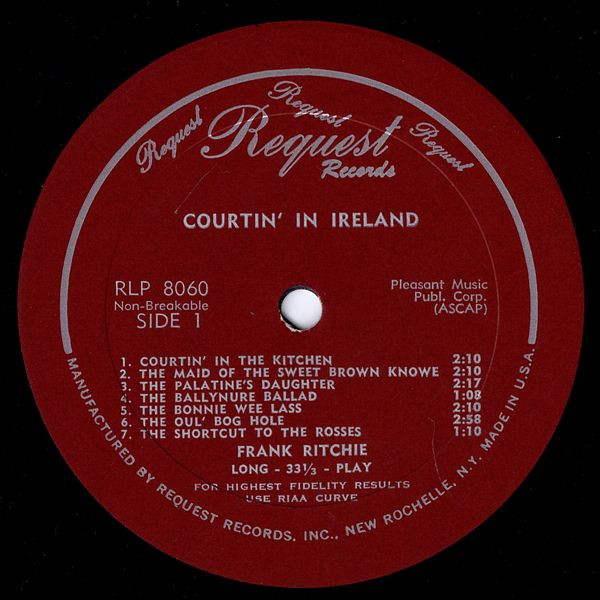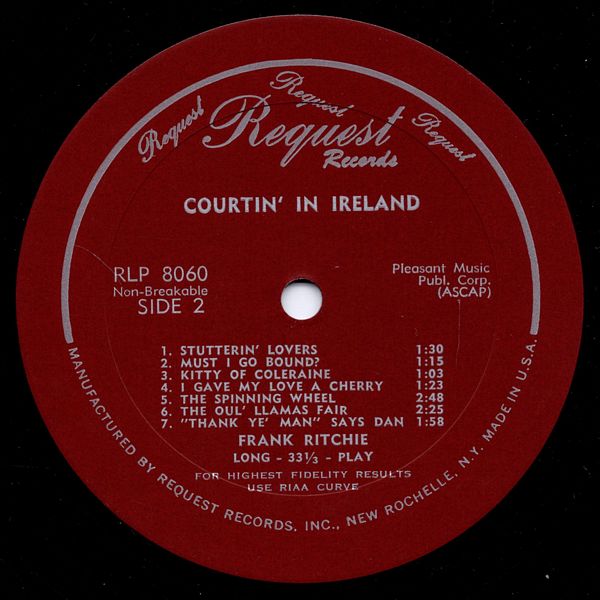
 |


 |
Sleeve Notes
Courtin' In the Kitchen — A lusty song of a grocer's apprentice courting a kitchen lass on a Sunday afternoon with the master well out of the way.
The Maid of The Sweet Brown Knowe — The word "knowe", which means a hillside, betrays the Scots ancestry of this song. It is a wry little song of a girl who played a little too hard to get.
The Palatine's Daughter — The Palatine settlement was in Munster. It wasn't only English and Scots who settled or were planted in Ireland. As the last refuge westwards before America became accessible, Ireland provided a haven for many Europeans, the Huguenots for instance, and the Palatines were one group of them.
The Ballynure Ballad — Ballynure is a little town in County Antrim, and the name means the town of the yew trees - as Frank Ritchie ought to know, for he went to school there and learnt this song at the source. Some experts call the song a fragment. Were there more verses, or did the singer really leave the lovers behind the hedge to their conversation, just when it was getting interesting?
The Bonnie Wee Lass — An Ulster song popular in the north of Antrim and Derry where the Scots influence is strong; which accounts for the lack of brogue and the presence of Scots burr.
The Oul' Bog Hole — Bog holes used to be for drowning bailiffs, but here is one old water-hole in the bog used for many scenes of courtship.
The Short Cut to The Rosses — The Rosses is part of the tattered Atlantic fringe of Donegal.
Stutterin' Lovers — Stuttering has always attracted the writers of songs and the balladeers because of the opportunity to repeat syllables and notes.
Must I Go Bound? — A lovely song of unrequited love. It appears in the Bunting collection, but this version was remembered by an old Donegal resident.
Kitty Of Coleraine — Period is in every line of this song, and the period is the late eighteenth century. It almost sounds as if it was written to describe a roguish, graceful illustration in a book of Irish Scenes.
I Gave My Love A Cherry — This is the Riddle Song. There are many versions of it, in the British Isles and America. The original is from the fifteenth century in a minor key.
The Spinning Wheel — A gentle little song, sung to the quiet rhythm of the spinning wheel, of a young girl's ruse to get away from her grandmother and join her lover in the moonlight.
The Oul' Llamas Fair — An old Irish favorite.
"Thank You, Ma'am" Says Dan — One of the oldest street ballads first mentioned by the late P. J. MacCall.
Frank Ritchie was raised among folk songs. He began listening to the singing at family gatherings and soon became an active participant. Frank Ritchie turned his hobby into a profession during the war when he became a star entertainer for the GI's passing through Ireland. He spent a lot of time studying the folk music of his country and his work contributed to the growing love for Irish Folk music.
By the end of the war Frank Ritchie's name had a familiar ring to most of his countrymen. He was an attraction at country concerts and soon began expanding his talents by appearing on television. Frank Ritchie's already large audience grew rapidly with his regular appearance on the BBC's Ceili programs. For some time he has also been a regularly featured entertainer on the most popular local television show in his country, "The Humour Is On Me Now."
Frank Ritchie brings to your home the charm of authentic Irish music by way of Request Records' series MUSIC OF MANY LANDS.